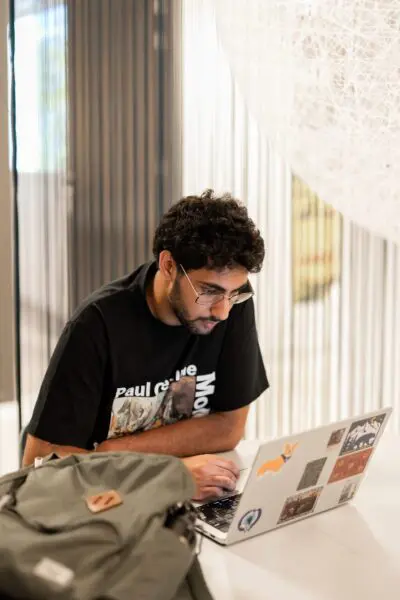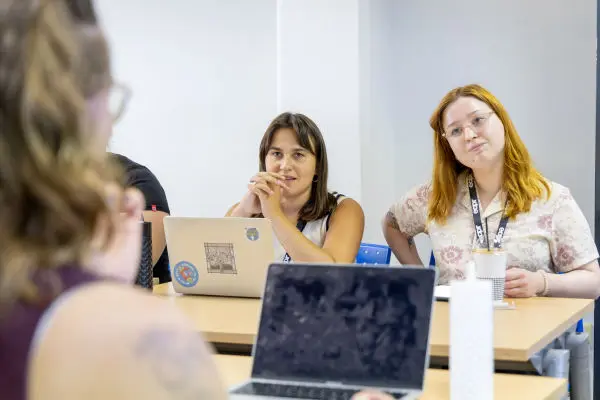
Amsterdam, Netherlands
Comprehensive Introduction to Research Methodology and Design
When:
29 June - 24 July 2026
Credits:
0 EC
Read more
Social Sciences
When:
31 July - 04 August 2023
School:
Institution:
European Consortium for Political Research (ECPR)
City:
Country:
Language:
English
Credits:
4 EC
Fee:
478 GBP

Learn how visual and nonverbal elements can be systematically analysed with visual techniques in your politics research.
Need to know
You will need a basic understanding of content analysis and social scientific methods, including surveys, experiments, and focus groups. Preparation for the course requires 5–10 hours of assigned reading.
In depth
Although highly memorable and persuasive, visuals are the overlooked element of media and communication in political analysis. This in-depth introduction to visual analysis will allow you to see the relevance of visual and nonverbal communication in your own work, and pave the way to understanding and integrating specifying multimodal study designs.
Day 1
You will review relevant concepts and theories that inform visuals analysis. These include framing, priming, and information processing; and, on the nonverbal side, emotional appropriateness, expectancy violation theory, and social dominance. You will discuss the relevance of visual literacy and evolutionary theory.
Day 2
Beginning with two analytical challenges: identify visual frames in different sets of images and coding patterns of nonverbal behaviour in video footage of leaders. Review coding approaches for each data type (visual frames and nonverbal behaviour) and introduce quality control practices, such as variable definitions, codebook development, and intercoder reliability.
Day 3
Examine qualitative research, derived from open-ended responses to visual frames, across several different policy contexts, including environmental issues, attitudes towards refugees, and public health misinformation. You will discuss techniques for performing theme analysis of qualitative data.
Day 4
Moving to quantitative research based on visual data, first showing how to use visual variables as outcomes in descriptive content analyses. You will learn how to repurpose the same data as predictors in inferential study designs, including experimental and time series models.
Day 5
Turning to the future of visual politics research, exploring the possibilities of computational techniques capable of parsing both still images and video. A brief review of the field identifies relevant conferences, journals and other outlets for work in visual politics.
How the course will work online
The course combines asynchronous pre-class assignments, such as readings, as well as live daily two-hour sessions via a conferencing platform with lectures, PowerPoint presentations, and student questions-and-answers. To gain the most from this course, read the assigned articles in advance of each class, and practice coding techniques and other modes of analysis after they are introduced each day.
Erik P. Bucy is Regents Professor of Strategic Communication at Texas Tech University, where he teaches and conducts research on visual politics, nonverbal communication, and public opinion about the press.
Advanced students, researchers, and professional analysts.
To provide an in-depth introduction to the theory, methods, and application of visual communication analysis in politics. You'll learn relevant concepts for studying visual politics, followed by different approaches to sampling and visual analysis at the descriptive level. The course covers the use of visuals in inferential and interpretive study designs, using both quantitative and qualitative methods.
Gain a developed understanding of:
• why visuals matter in politics;
• how to analyse systematically visual and nonverbal elements of news, political events, and leader behaviour;
• what research questions are appropriate to answer with visual techniques;
• how different methodologies can be leveraged to incorporate visual dimensions of news and politics into study designs.
Fee
478 GBP, ECPR Member
Fee
956 GBP, ECPR Non-Member
When:
31 July - 04 August 2023
School:
Institution:
European Consortium for Political Research (ECPR)
Language:
English
Credits:
4 EC

Amsterdam, Netherlands
When:
29 June - 24 July 2026
Credits:
0 EC
Read more

Linköping, Sweden
When:
26 June - 25 July 2026
Credits:
7.5 EC
Read more

Colchester, United Kingdom
When:
23 February - 27 February 2026
Credits:
4 EC
Read more